Since our inception in 2001, we have worked with organizations advocating and effecting change for historically underserved populations. Not surprisingly, many of our clients have responded to the events of the past several days following the murder of George Floyd by four policemen in Minneapolis with stellar thought pieces and actionable resources. This post will be updated frequently.
Morningside Center for Teaching Social Responsibility
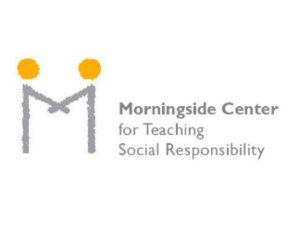
Morningside Center was founded in 1982 by educators who saw that young people were the key to a future without war and hatred. The organization began working in collaboration with New York City public schools to teach young people skills in peacemaking using engaging and interactive techniques.
So began the Resolving Conflict Creatively Program, a practical, field-tested curriculum that aimed to “increase the peace” by helping young people learn skills ranging from active listening to respecting differences to peer mediation. Since then, Morningside Center has become a national leader in the fields of social & emotional learning (SEL) and restorative practices.
- Listening Circle on George Floyd: Discussing upsetting events with young people.
When upsetting events happen in the world, it can be helpful to give young people a chance to share their feelings and thoughts about them. While we adults may be tempted to avoid bringing up such news, if it is on students’ minds, it’s present in the classroom, whether we talk about it or not. - An Essay about White Privilege
Following an incident in which a Black NBA player confronted a white fan for making a racist comment during a game, Kyle Korver, a white NBA player with the Utah Jazz, published a thoughtful essay entitled “Privileged,” which went viral. In his essay, Korver reflects on the level of racism in the NBA and in our society at large; white privilege, including his own; and the responsibility that he and other white people have to counter racism. - Civil Rights History and Mythology
The lesson is based on historian Jeanne Theoharis’s book A More Beautiful and Terrible History, which explores the way civil rights history has been presented and misrepresented, including the omission of Northern civil rights history, the under-representation of women’s roles, and the mythologies surrounding Martin Luther King and Rosa Parks.
Race Forward
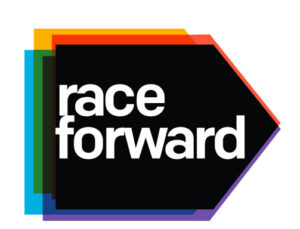
Founded in 1981, Race Forward catalyzes movement building for racial justice. In partnership with communities, organizations, and sectors, Race Forward builds strategies to advance racial justice in our policies, institutions, and culture.
Race Forward has set up a donation page – – like so many other nonprofit organizations, Race Forward was impacted by Covid-19 and then have been called upon in the wake of the murder of George Floyd.
- Racial Justice Training
Race Forward’s Building Racial Equity series is a collection of interactive trainings for those who wish to sharpen their skills and strategies to address structural racism and advance racial equity. Unlike “diversity trainings” which primarily focus on interpersonal relations and understanding, the Building Racial Equity trainings emphasize how to challenge and change institutional racial inequities. - Momentum: A Race Forward Podcast
Momentum: A Race Forward Podcast features movement voices, stories, and strategies for racial justice. Co-hosts Chevon and Hiba give their unique takes on race and pop culture, and uplift narratives of hope, struggle, and joy, as we continue to build the momentum needed to advance racial justice in our policies, institutions, and culture. Build on your racial justice lens and get inspired to drive action by learning from organizational leaders and community activists. - Colorlines
Colorlines is a daily news site where race matters, featuring award-winning investigative reporting and news analysis, published by Race Forward. From memoirs to poetry to fiction, these titles will deepen your understanding of what’s going on, inspire activism and even entertain the kids.
Enterprise Community Partnership (ECP)
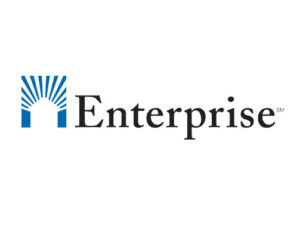
Where we live matters: ECP makes well-designed homes affordable and create communities with connections to opportunity so everyone can thrive.
Enterprise is the only housing organization in the U.S. with the expertise to multiply the impact for people and communities. They deliver the capital, develop the programs, and advocate for the policies needed to create and preserve well-designed homes that people can afford in inclusive and connected communities.
As our country cries out against the many forms of structural racism that we’ve witnessed and continue to witness, ECP invited colleagues across the organization to pause and share what’s in their hearts and on their minds.
- Letting Go of What Was and Creating Space for What Could Be
- A Moment Like No Other
- The Shared Weight of the Oppressor
- Standing at the Ready
Center for Law and Social Policy (CLASP)
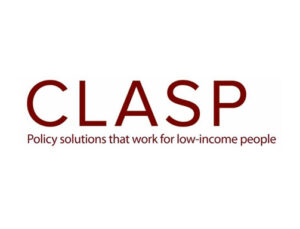
The Center for Law and Social Policy (CLASP) is a national, nonpartisan, nonprofit organization advancing policy solutions for low-income people. CLASP works to develop and implement federal, state, and local policies (in legislation, regulation, and on the ground) that reduce poverty, improve low-income people’s lives, and creates pathways to economic security for everyone. That includes directly addressing the barriers people face because of race, ethnicity, and immigration status.
- Reflecting, Renewing, and Responding to Overcome 400 years of Oppression
CLASP and Cities United are working to eliminate the violence in American cities related to African American men and boys by centering young Black men and promoting prevention instead of prosecution and intervention instead of incarceration. - Our Ground. Our Voices Towards Economic Justice for Young Women of Color
This inspiring series gives young women of color a voice and focuses on how race, gender, and their intersection impact the structural barriers they face. - Louisville KY, Glynn County, GA, and Now Minneapolis, MN: Enough is Enough. The Time Has Come for Us All to Stand in Solidarity
A statement from Oliva Golden, executive director of CLASP
Center for Budget and Policy Priorities
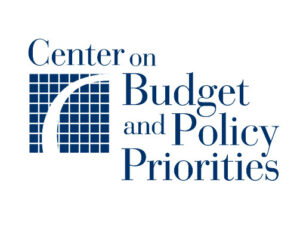
The Center on Budget and Policy Priorities (CBPP) was founded in 1981 to analyze federal budget priorities, with a particular focus on how budget choices affect low-income Americans. Their work has broadened considerably over the years and they began extensive work on budget priorities and low-income programs at the state level in the 1990s as Washington was shifting responsibility over many areas of low-income policy to the states. They also collaborate with non-profits to build their capacity to conduct sound budget and policy analysis and participate effectively in policy debates.
- CBPP Adds Its Voice to Calls for Justice and Systemic Reform
A statement from Robert Greenstein, president, on the killing of George Floyd and subsequent protests for Black lives. - 3 Principles for an Anti-Racist, Equitable State Response to COVID-19 — and a Stronger Recovery
People of color are experiencing disproportionately more infections and hospitalizations — and among Black people, highly disproportionate death rates — with people of color also overrepresented in jobs that are at higher infection risk now and in the jobs hardest hit economically.
Salesforce
Note: Fíonta is a Salesforce Premium Partner.
Trailhead Learning
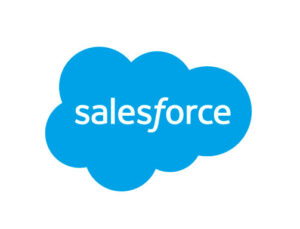
Get started on Trailhead by setting up a Salesforce account. We have created a three-minute video that walks you through how to set up your account.
- Cultivate Equality at Work
- Impact of Unconscious Bias
- Inclusive Leadership Practices
- Equality Ally Strategies
- Business Value of Equality
Salesforce Equality
- Building a Workplace That Reflects Society
- 2019 Equality Data
Amplify
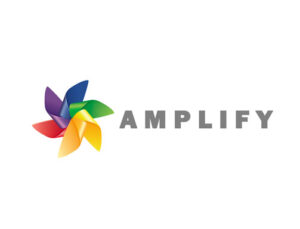
Amplify works to empower underrepresented voices in technology, including those of people of color, transgender people, nonbinary people, LGBTQIA+, differently-abled, neuro-diverse, and those who identify as women. Fíonta is a proud sponsor of Amplify.
- 8 Ways People of Color are Tokenized in Non-Profits
Tokenism gives those in power the appearance of being non-racist and even champions of diversity because they recruit and use POC as racialized props. - Layla Saad: Me and White Supremacy Workbook
Me and White Supremacy: A 28-Day Challenge to Combat Racism, Change the World, and Become a Good Ancestor leads readers through a journey of understanding their white privilege and participation in white supremacy so that they can stop (often unconsciously) inflicting damage on black, indigenous and people of color, and in turn, help other white people do better, too. The book goes beyond the original workbook by adding more historical and cultural contexts, sharing moving stories and anecdotes, and includes expanded definitions, examples, and further resources. - Opportunities for White People in the Fight for Racial Justice
The ideas captured have been developed to support White people to act for racial justice. It draws from ideas and resources developed mostly by Black, Brown, and People of Color, and has been edited by Black, Brown, and People of Color. - How to Be an Ally to Someone Experiencing Microaggressions
While there are lots of ways to be an ally (e.g., mentoring, being a sponsor, shaping policy), the one that is often unexpectedly challenging is how to respond to microaggressions in the moment. The sad truth is not only are microaggressions a regular occurrence, but they’re also painful to receive and observe, and they have a lasting impact. - Making Tech Spaces Safe for Diverse Faces
Technology events can be extremely empowering experiences for planners, speakers, and attendees. However, this empowerment is only fully experienced if you’re a straight, cis white male. For everyone else, there are limits to what can be gained from technology events. And for women, technology events present more than just unequal access to benefits: they can be dangerous spaces where harassment, assault, and even death are real threats. - Additional resources culled by Amplify
Financial Literacy
Financial Literacy in the Black Community – Annuity.org
Juneteenth
Fíonta has added Juneteenth as an annual holiday for employees and will be closed out of respect for the holiday on June 19, 2020.
Juneteenth is the oldest nationally celebrated commemoration of the ending of slavery in the United States. From its Galveston, Texas origin in 1865, the observance of June 19th as the African American Emancipation Day has spread across the United States and beyond.
Today Juneteenth commemorates African American freedom and emphasizes education and achievement. It is a day, a week, and in some areas a month marked with celebrations, guest speakers, picnics, and family gatherings. It is a time for reflection and rejoicing. It is a time for assessment, self-improvement, and for planning the future. Its growing popularity signifies a level of maturity and dignity in America long overdue. In cities across the country, people of all races, nationalities, and religions are joining hands to truthfully acknowledge a period in our history that shaped and continues to influence our society today. Sensitized to the conditions and experiences of others, only then can we make significant and lasting improvements in our society.
Source: https://www.juneteenth.com/
Juneteenth Resources
- The Proclamation of Emancipation ((National Museum of African American History and Culture Online Collection)
- Ways to celebrate Juneteenth (Juneteenth.com)
- Culinary inspiration from black chefs across the country (New York Times)
- The historical legacy of Juneteenth (National Museum of African American History and Culture)
- Ways businesses can support Juneteenth (Zenefits.com)
“If there is no struggle, there is no progress.”
– Frederick Douglass


